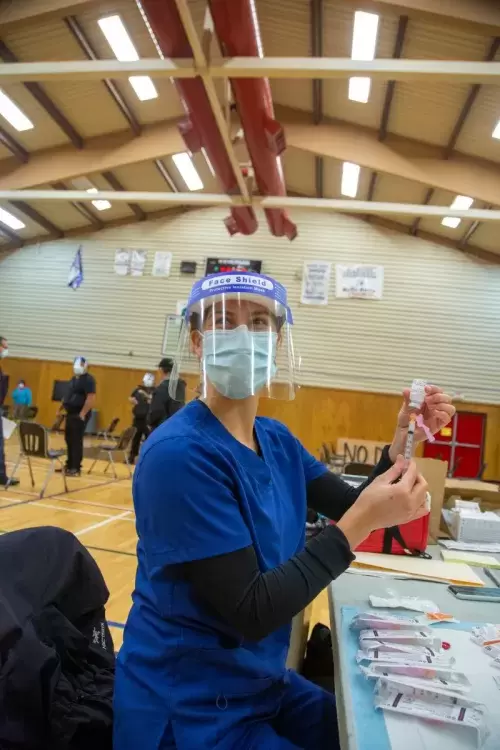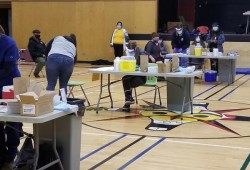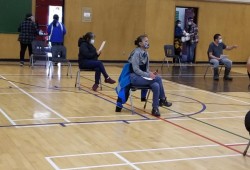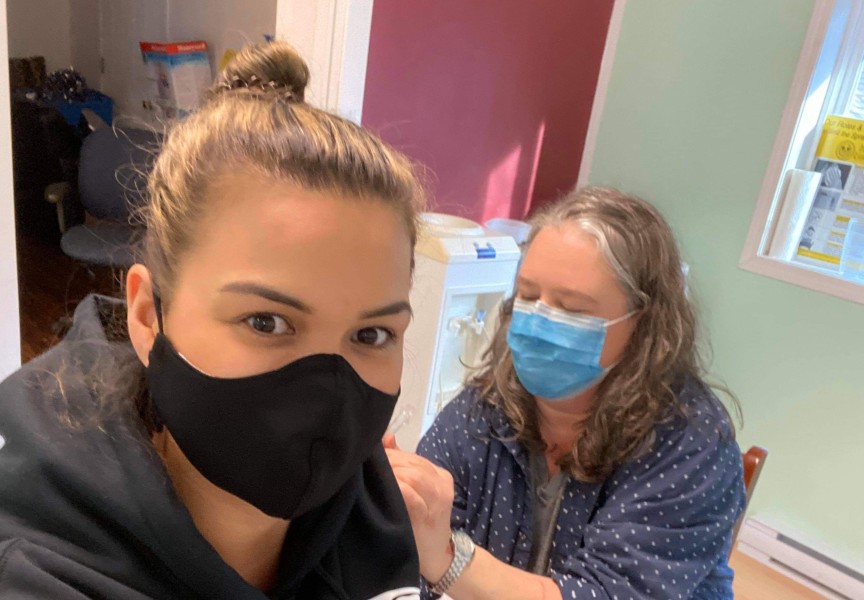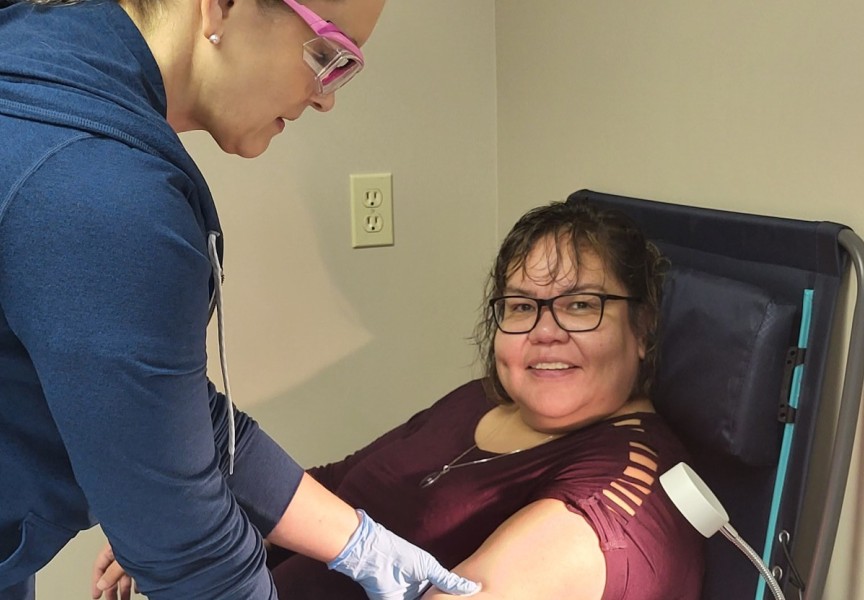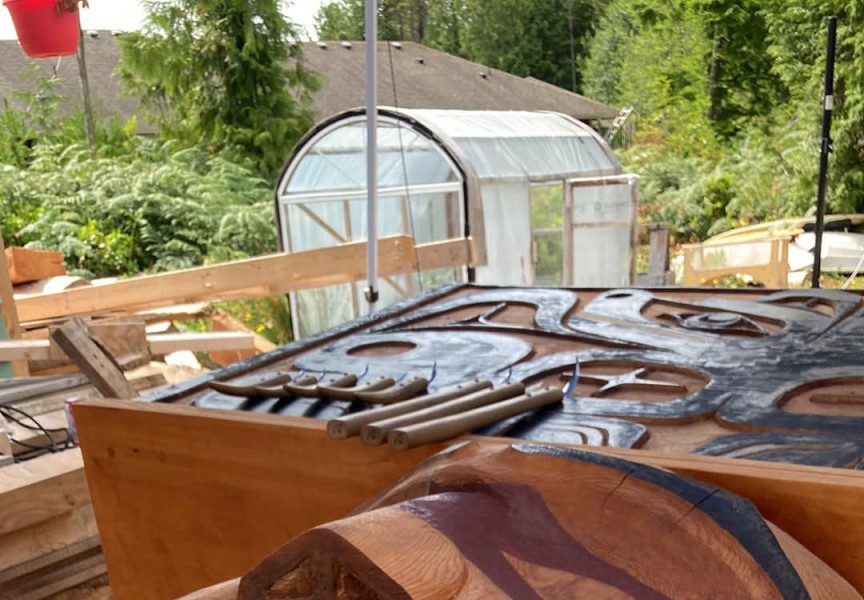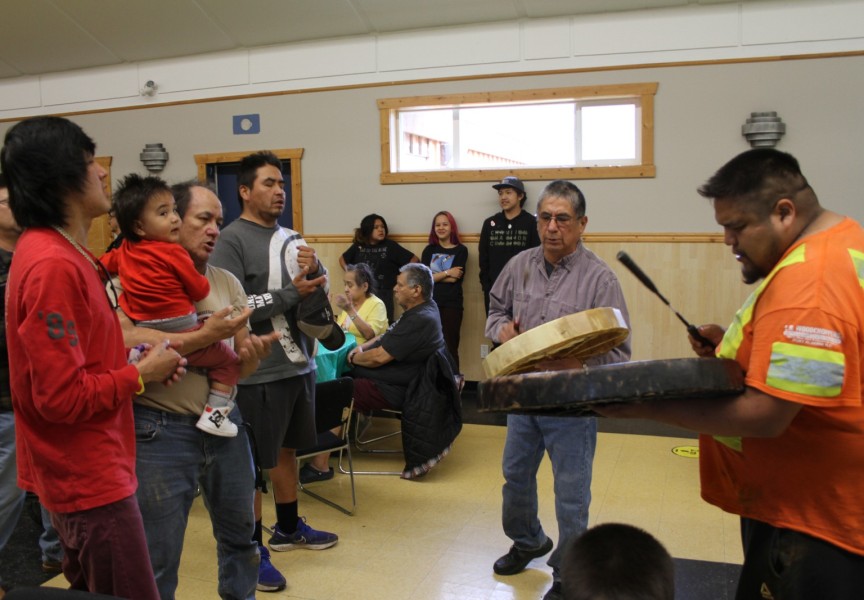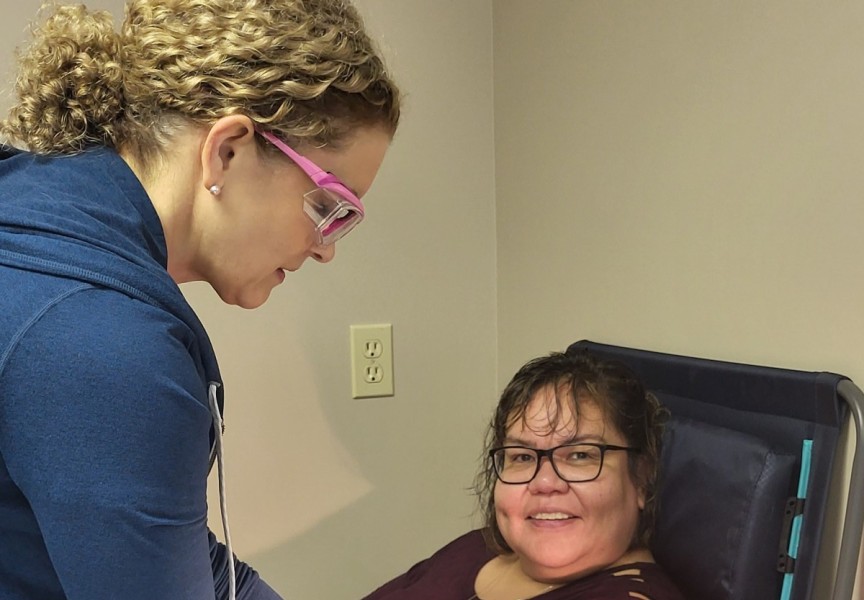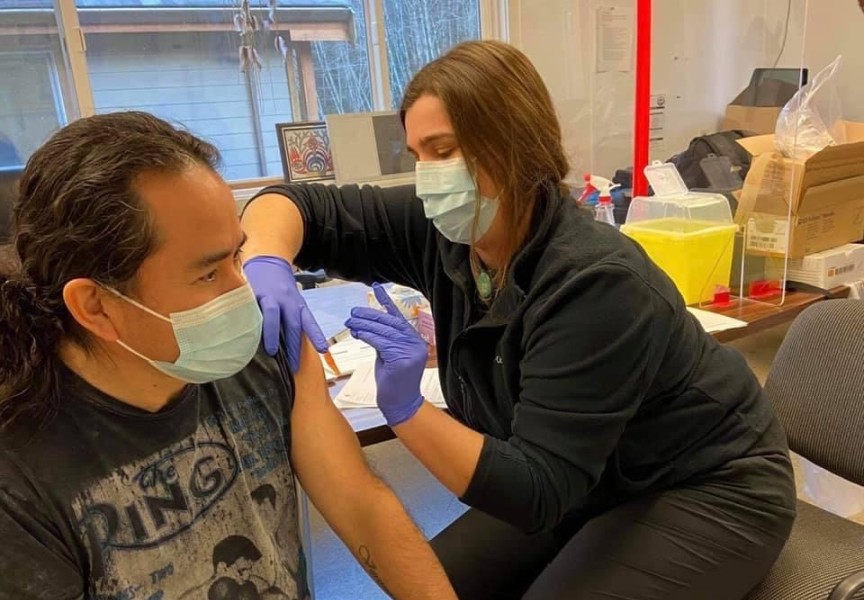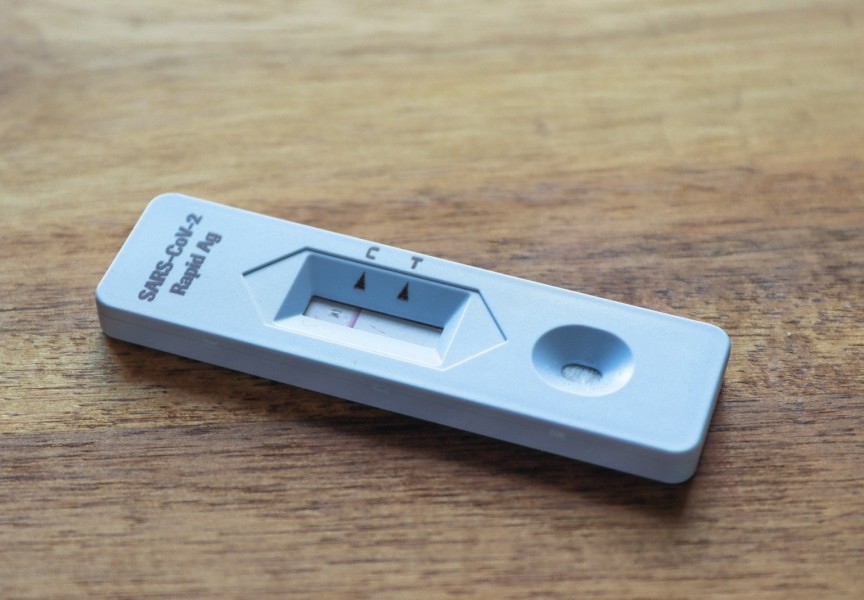In what must feel like the beginning of the end of a pandemic, Ahousaht leadership say they are grateful to be selected as one of the first communities to receive the vaccine for its residents.
It was in late December 2020 that elected Chief Greg Louie said he received an email from the First Nations Health Authority telling him that Ahousaht is among the first remote Indigenous communities selected to receive the Moderna COVID-19 vaccine.
According to the FNHA, there have been over 2,000 Indigenous people in B.C. infected with the COVID-19 virus since the beginning of the pandemic, and as of Jan. 5, 24 status Indians have died. Dr. Shannon McDonald, acting CMO at FNHA says that the total case number includes both those living on and off reserve.
Since late December FNHA has been working in partnership with Island Health and First Nations to get the vaccine to nine Indigenous communities on Vancouver Island over the first few days of 2021.
These communities were prioritized, according to FNHA, by the degree of remoteness and if they have been impacted by a COVID-19 outbreak.
Located on Flores Island, Ahousaht is accessible only by boat or float plane. It takes about 40 minutes for a water taxi to make the trip to Tofino, where the nearest hospital is located. There was an outbreak of COVID-19 in the village in December 2020 that has since resolved.
Ahousaht is the largest Nuu-chah-nulth nation with an on-reserve population of about 1,000. The village will receive 520 doses of the Moderna vaccine, which will be offered to all Ahousaht residents over the age of 18. Louie said non-band members will be included in the vaccination program including teachers, office staff, contractors and other essential workers that attend the community on a regular basis.
Elders living off reserve are not eligible to receive this round of vaccination. Louie said the 520 doses they receive is strictly for residents of the community and he hoped that all units will be used. Taking the vaccine is optional, said Louie, but he hopes that people will keep family members that are elderly or immune-compromised in mind when they consider the vaccine.
“The bottom line is that it is important to save people’s lives – to take care of our people’s health,” said Louie.
FNHA has been working to assure the Indigenous community that the vaccine is safe and its benefits outweigh the risks. Dr. McDonald noted that many Indigenous people are wary of the vaccine. She said some recall historic trauma endured at Indian hospitals, medical experiments on children at Indian residential schools and the general mistrust of the medical profession.
“We are working on building vaccine confidence,” said McDonald. “The more people vaccinated, the less chance for the virus to spread through the community,” she added.
Since late December, Ahousaht chief and council, NTC nursing and FNHA staff have been working together to plan the safe and orderly delivery of the vaccine. With social distancing protocols still in place, Ahousaht members came up with a plan to bring residents to the Maaqtusiis gym a few at a time, similar to the procedure for their food distribution process.
Since Ahousaht went into lockdown following a surge in COVID-19 cases, food is being brought into the village and distributed to the people so that they don’t have to travel away, potentially exposing themselves to the virus.
Louie said the village is divided into eight sections. Residents are called to the food location based on where they live. They listen on their VHF radios or monitor social media to be called to go to food distribution. The same method will be used with the vaccination program, which will take place over three to four days between Jan. 6 – 9, 2021.
There will be cultural support workers available to brush people or to help calm those that are worried about taking the vaccine.
For those concerned about the safety of the vaccine, a question and answer session was set up with Medical Health Officer Dr. Charmaine Enns of Island Health via a tele-conferencing technology on Dec. 31.
According to Louie, five nurses will be coming to the village to run three vaccination tables at the gym. Ahousaht Hereditary Chief Tlakiishwia (John Keitlah Jr.) will lead a ceremony that, according to Louie’s understanding, will include a prayer chant and words of gratitude for the work that the nurses do, expressing relief that the vaccine will bring.
“What do I feel about the vaccine coming here?” Louie asked. “Happiness, for lack of a better word.”
He was pleased that his nation has been given this opportunity to be among the first to receive a vaccine that will keep them safe and healthy.
While they are thrilled to have the vaccination, Louie reminds people that they are not immune to the virus until they receive the second shot. He is optimistic that the second shots will be delivered to the community about four weeks following the initial dose.
He reminds people that they need to keep up social distancing and other safety protocols in the meantime.
“Even though we did our best to keep it out, COVID still came here,” said Louie.
Besides the inoculations on Vancouver Island, an additional nine B.C. First Nations will receive the vaccine in the coming days for a total of 18 communities.
Plans for vaccinating Indigenous elders living off reserve is in the works. Dr. McDonald says FNHA is working with Island Health and other agencies to plan for the distribution of the vaccine.
“Getting the vaccine to everyone is a logistically immense operation,” she said.
She asked people to please be patient, assuring them that the FNHA team of over 100 people are working hard to plan for the distribution of the vaccine.

